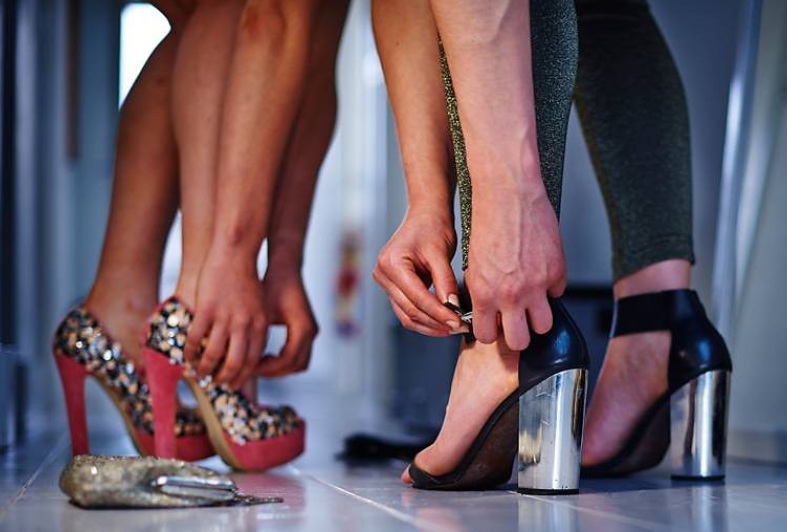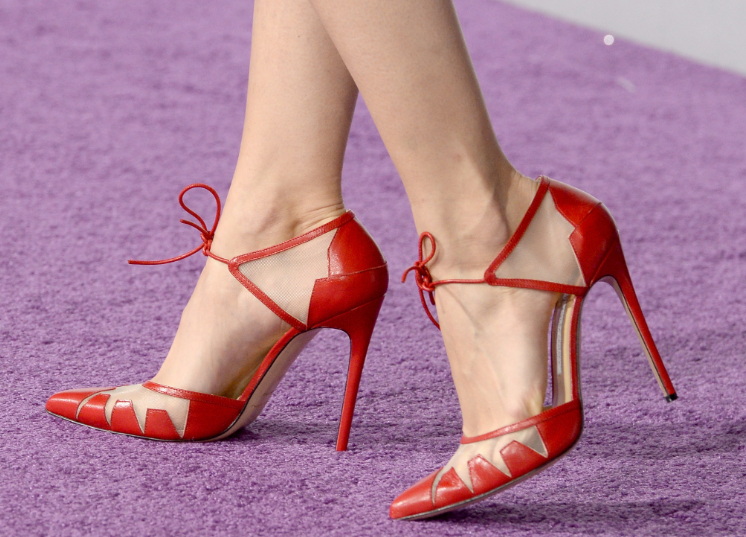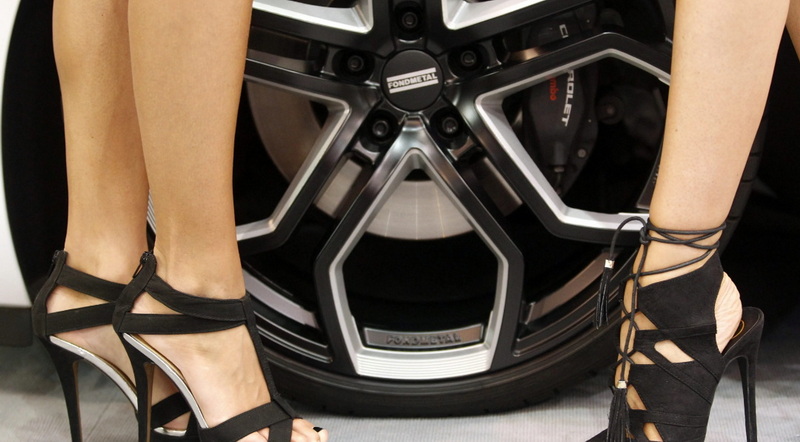Content Menu
● The Science Behind the Attraction
>> Altered Posture and Gait
>> The Illusion of Height and Leg Length
● Cultural and Social Factors
>> Media Influence and Societal Expectations
>> Status Symbol and Confidence Booster
● Psychological Perspectives
>> Evolutionary Psychology
>> The Power of Context
● The Controversy and Health Concerns
>> Physical Health Risks
>> Feminist Perspectives
● The Future of High Heels
● Conclusion
● FAQ
>> 1. Are high heels universally attractive to all men?
>> 2. Do high heels actually make women more attractive, or is it just a cultural construct?
>> 3. Are there any benefits to wearing high heels besides attractiveness?
>> 4. How can women balance the desire to wear high heels with health concerns?
>> 5. Is the preference for high heels changing in modern society?
● Citations:
High heels have been a staple of women's fashion for centuries, captivating the attention of both wearers and observers alike. This article delves into the fascinating world of high heels and explores the reasons behind their enduring appeal, particularly to men. We'll examine scientific studies, cultural influences, and psychological factors that contribute to this phenomenon.

The Science Behind the Attraction
Altered Posture and Gait
Research has shown that high heels significantly alter a woman's posture and gait, creating what many perceive as a more attractive silhouette. A study published in the journal Archives of Sexual Behavior found that men were more likely to approach and interact with women wearing high heels compared to those in flat shoes[1][2].
The change in posture induced by high heels includes:
- Increased lumbar curvature
- Exaggerated chest and hip movements
- Increased pelvic tilt
These alterations create a walk that many men find inherently attractive, as it emphasizes traditionally feminine characteristics.
The Illusion of Height and Leg Length
High heels create the illusion of longer, more slender legs, which is often considered aesthetically pleasing. This effect is not just visual but also impacts how women are perceived in terms of status and attractiveness.
A study by Nicolas Guéguen found that men were more likely to help women wearing high heels, suggesting that the added height and perceived attractiveness influenced their behavior[1].
Cultural and Social Factors
Media Influence and Societal Expectations
The association between high heels and attractiveness is deeply ingrained in popular culture. From movies to advertisements, high heels are often portrayed as symbols of femininity, power, and sexuality.
This cultural conditioning plays a significant role in shaping perceptions of attractiveness and desirability.
Status Symbol and Confidence Booster
High heels are often seen as a status symbol, associated with luxury and sophistication. The discomfort and "cost" of wearing them can be interpreted as a sign of dedication to appearance, which some men find attractive[3].
Moreover, many women report feeling more confident when wearing high heels, which in turn can make them more attractive to potential partners.
Psychological Perspectives
Evolutionary Psychology
Some researchers argue that the attraction to high heels may have evolutionary roots. The altered posture and gait created by high heels mimic certain aspects of female sexual behavior, potentially triggering innate mating instincts in men[9].
The Power of Context
It's important to note that the appeal of high heels is often context-dependent. In formal or social settings, high heels may be seen as more appropriate and attractive, while in casual situations, comfort might be prioritized[7].

The Controversy and Health Concerns
While high heels are often associated with attractiveness, it's crucial to acknowledge the potential health risks and controversies surrounding their use.
Physical Health Risks
Prolonged wearing of high heels can lead to various health issues, including:
- Chronic foot pain
- Back problems
- Increased risk of ankle injuries
Feminist Perspectives
Some feminist scholars argue that the expectation for women to wear high heels is a form of gender oppression, prioritizing male preferences over female comfort and health[9].
The Future of High Heels
As society evolves, so do fashion trends and perceptions of attractiveness. While high heels remain popular, there's a growing emphasis on comfort and practicality in women's footwear.
Designers are increasingly focusing on creating high heels that balance style with comfort, addressing some of the health concerns associated with traditional designs.
Conclusion
The attraction men feel towards women in high heels is a complex interplay of biological, psychological, and cultural factors. While scientific studies have shown that high heels can enhance perceived attractiveness, it's essential to recognize that personal preferences vary widely and that comfort and health should always be prioritized over conforming to societal expectations.
As we continue to examine and challenge traditional notions of attractiveness, it's likely that perceptions of high heels will evolve. However, their enduring presence in fashion and popular culture suggests that they will remain a subject of fascination and study for years to come.

FAQ
1. Are high heels universally attractive to all men?
No, attraction is subjective and varies from person to person. While studies show a general trend of men finding women in high heels more attractive, individual preferences can differ significantly based on personal taste, cultural background, and other factors.
2. Do high heels actually make women more attractive, or is it just a cultural construct?
It's a combination of both. High heels do alter posture and gait in ways that many find attractive, but cultural conditioning also plays a significant role in shaping these perceptions. The association between high heels and attractiveness is heavily influenced by media representation and societal norms.
3. Are there any benefits to wearing high heels besides attractiveness?
Some women report feeling more confident and powerful when wearing high heels, which can be beneficial in certain social or professional settings. However, these benefits should be weighed against potential health risks associated with prolonged high heel use.
4. How can women balance the desire to wear high heels with health concerns?
To minimize health risks, women can:
- Limit the time spent wearing high heels
- Choose well-fitted shoes with lower, wider heels
- Use inserts for added comfort
- Alternate between high heels and more comfortable footwear
5. Is the preference for high heels changing in modern society?
There's a growing trend towards more comfortable and practical footwear, with many workplaces relaxing dress codes. However, high heels remain popular for formal events and in certain professions. The fashion industry is also adapting by creating more ergonomic high heel designs.
Citations:
[1] https://www.deseret.com/2015/1/3/20555812/men-like-women-in-high-heels-study-finds/
[2] https://time.com/3595843/women-high-heels/
[3] https://www.psypost.org/study-finds-women-in-high-heels-are-perceived-as-more-attractive-feminine-and-higher-status/
[4] https://unsplash.com/s/photos/heels
[5] https://unsplash.com/s/photos/high-heels
[6] https://www.youtube.com/watch?v=k8qdmnxzt34
[7] https://www.reddit.com/r/EverythingScience/comments/ult5lu/study_finds_women_in_high_heels_are_perceived_as/
[8] https://www.researchgate.net/publication/276419268_Men's_Judgment_and_Behavior_Toward_Women_Wearing_High_Heels
[9] https://pmc.ncbi.nlm.nih.gov/articles/PMC9580400/
[10] https://www.lummi.ai/s/photo/High%20heels

















